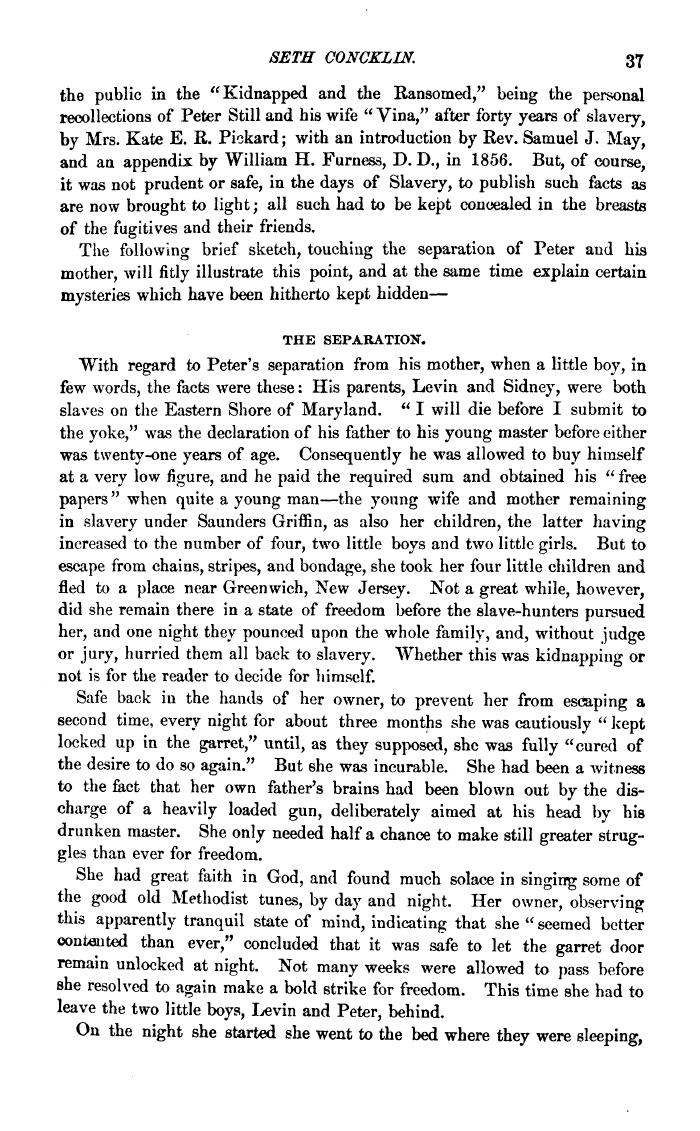 |
||||
 |
||||
| SETH CONCKLIN. 37 the public in the "Kidnapped and the Ransomed," being the personal recollections of Peter Still and his wife " Vina," after forty years of slavery, by Mrs. Kate E. R. Pickard; with an introduction by Rev. Samuel J. May, and an appendix by William H. Furness, D. D., in 1856. But, of course, it was not prudent or safe, in the days of Slavery, to publish such facts as are now brought to light; all such had to be kept concealed in the breasts of the fugitives and their friends. The following brief sketch, touching the separation of Peter and his mother, will fitly illustrate this point, and at the same time explain certain mysteries which have been hitherto kept hidden— THE SEPARATION. "With regard to Peter's separation from his mother, when a little boy, in few words, the facts were these: His parents, Levin and Sidney, were both slaves on the Eastern Shore of Maryland. " I will die before I submit to the yoke," was the declaration of his father to his young master before either was twenty-one years of age. Consequently he was allowed to buy himself at a very low figure, and he paid the required sum and obtained his " free papers" when quite a young man—the young wife and mother remaining in slavery under Saunders Griffin, as also her children, the latter having increased to the number of four, two little boys and two little girls. But to escape from chains, stripes, and bondage, she took her four little children and fled to a place near Greenwich, New Jersey. Not a great while, however, did she remain there in a state of freedom before the slave-hunters pursued her, and one night they pounced upon the whole family, and, without judge or jury, hurried them all back to slavery. Whether this was kidnapping or not is for the reader to decide for himself. Safe back in the hands of her owner, to prevent her from escaping a second time, every night for about three months she was cautiously " kept locked up in the garret," until, as they supposed, she was fully "cured of the desire to do so again." But she was incurable. She had been a witness to the fact that her own father's brains had been blown out by the discharge of a heavily loaded gun, deliberately aimed at his head by his drunken master. She only needed half a chance to make still greater straggles than ever for freedom. She had great faith in God, and found much solace in singing some of the good old Methodist tunes, by day and night. Her owner, observing this apparently tranquil state of mind, indicating that she " seemed better contented than ever," concluded that it was safe to let the garret door remain unlocked at night. Not many weeks were allowed to pass before she resolved to again make a bold strike for freedom. This time she had to leave the two little boys, Levin and Peter, behind. On the night she started she went to the bed where they were sleeping, |